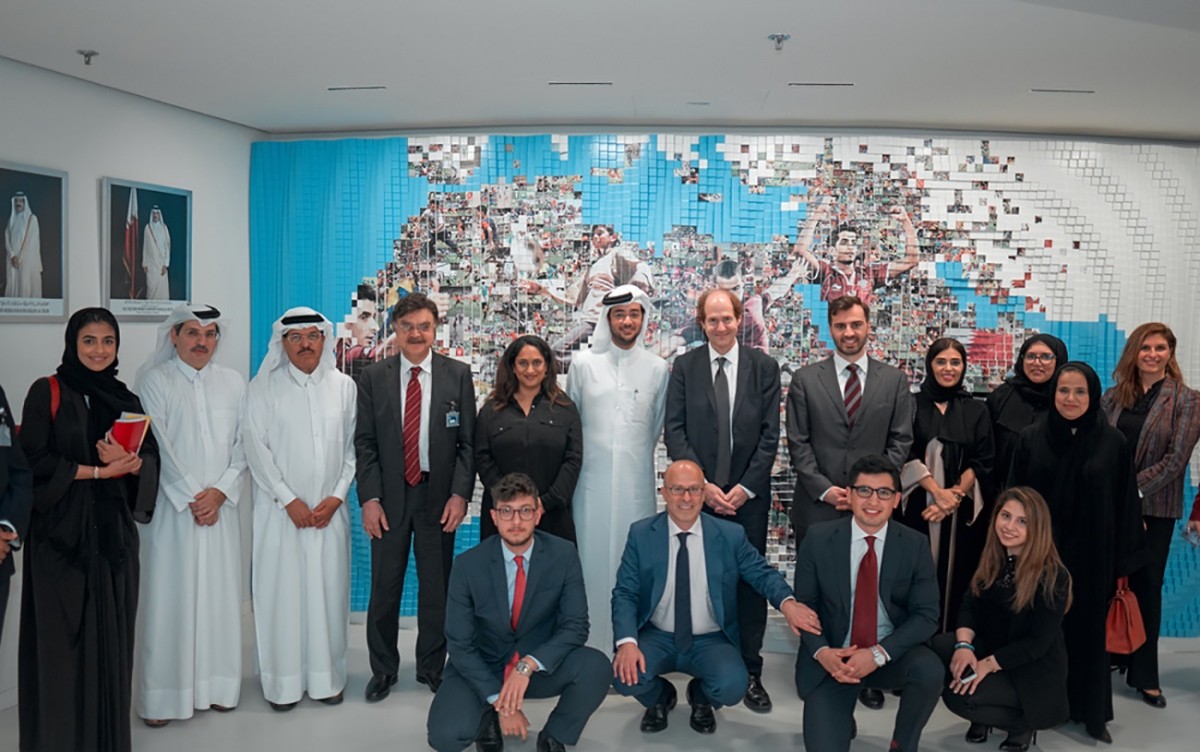.jpg)
_1-itok=GFMKQ6A9.jpg)
The Supreme Committee for Delivery & Legacy (SC), in partnership with Qatar Foundation (QF), has launched an initiative to promote and share knowledge about behavioural economics in Qatar.
Devised by the SC's Qatar Behavioural Insights Unit (QBIU) and QF, the 'Community of Practice for Behavioural Economics in Qatar' hosted a discussion with Professor Cass Sunstein, the founder and director of the Programme on Behavioural Economics and Public Policy at Harvard Law School, at the SC's Legacy Pavilion in Al Bidda Tower.
Sunstein is the Robert Walmsley University Professor at Harvard Law School, and co-author of best-selling book Nudge: Improving Decisions about Health, Wealth and Happiness. He spent three years working as US President Barack Obama's Administrator of the White House Office of Information and Regulatory Affairs.
Omran Al Kuwari, Executive Director, CEO Office, QF, and Dr Fadi Makki, who leads the QBIU team at the SC, co-moderated the discussion. The talk was attended by representatives from Hamad Bin Khalifa University, as well as from its research entities Qatar Environment and Energy Research Institute and Qatar Computing Research Institute; the World Innovation Summit for Health; Weill Cornell Medicine-Qatar; Doha International Family Institute; Qatar University; UCL Qatar; Newton International School; and Ooredoo.
Sunstein and his co-author, Nobel Prize winner Richard Thaler, have inspired the launch of 'nudge units' around the world. Usually sitting within government administrations, nudge units apply behavioural economics with the aim of improving government policy and services.
The QBIU leads policy experimentation – in areas such as healthy lifestyles, sustainability, workers' welfare, and entrepreneurship – that will support the successful delivery of the 2022 FIFA World Cup™ and steer Qatar and the region towards a better future, in line with the goals of Qatar National Vision 2030.
The new community of practice will comprise representatives from Qatar's government, academic and private sectors. They will meet regularly to share knowledge and pool efforts related to the growing field of behavioural economics. In addition, members will identify potential opportunities for strategic partnerships with leading academic and research institutions to address policy challenges that the country and region are facing, using nudges and other types of behavioural interventions.
Sunstein said he is impressed with Qatar's commitment to behavioural economics and praised the work of the QBIU.
"What I've noticed is that the World Cup is being seen by many as an opportunity to do something great in connection with football, and also things in relation to the type of challenges faced by many of the world's nations, such as health issues and the promotion of entrepreneurship," said Sunstein.
"My initial reaction is that in Qatar there has been extraordinary progress in a very short space of time when it comes to studying problems and using behavioural economics to figure out what needs to be done to solve them."
Sunstein, who also hosted lectures at the SC and QF during his visit, went on to outline the benefits of establishing a community of practice.
"Launching a body like this is extremely important. In my experience, a community of practice can take one person's idea and apply it in a number of different settings. It offers great potential," he said.
"Countries such as Denmark and Ireland are doing some fantastic work through communities of practice, and there is no reason why Qatar can't do the same."
Dr Makki said launching the community of practice would help the QBIU and QF share knowledge and pool efforts in the field of behavioural economics.
"The importance of this initiative stems from the need to bring together key national stakeholders involved in the development, implementation and monitoring of projects in Qatar with leading researchers, academics, and civil servants.
"This informal setting will foster discussions and knowledge sharing, which is crucial to align strategic directions and pool efforts towards the application of behavioural economics to inform more effective policy-making."
Al Kuwari emphasized the value of establishing a community dedicated to linking behavioural economics to informed policy-making, highlighting the impact this effort will have on the improvement of people welfare and well-being.
"The community of practice has enormous potential, and we are confident the body will contribute to the shared visions of both the SC and QF. The launch of this initiative aligns with QF's commitment to advance evidence-based policy-making.
"This community of practice will help Qatar to become a more sustainable and diversified economy by providing data-driven approaches to policy design and implementation, thereby supporting the improvement of public service delivery, people welfare, and general well-being."

